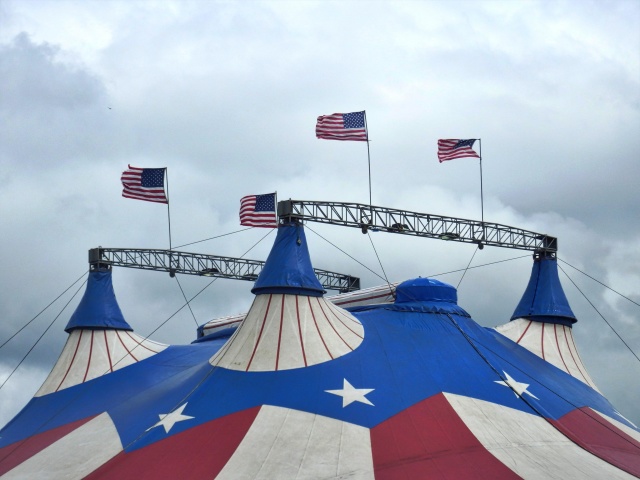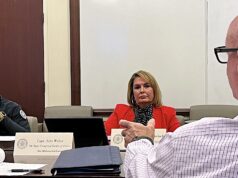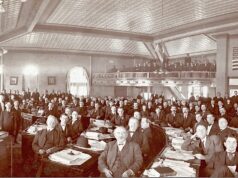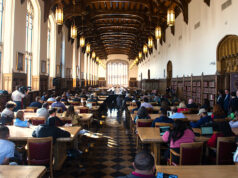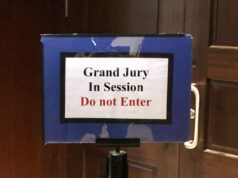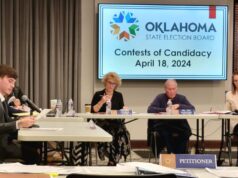There’s no better way to build and strengthen relationships than by participating in events that seek to build a sense of community. During the past few weeks, three events coincided that illustrate the importance and benefits of seeking to bridge cultural gaps.
Muslim Day
On Feb. 26, more than 200 Muslims, Jews, Christians and others expressed their solidarity during Muslim Day at the Oklahoma State Capitol. During that uplifting celebration of civic engagement, there were protesters. But, as was reported in the Tulsa World:
Inside the building, Senior Imam Imad S. Enchassi of the Islamic Society of Greater Oklahoma City met with some of the protesters to try to put their fears about Islam at ease.
“This is what we are about — dialogue,” he said, adding that those in attendance would keep repelling hate with love.
A Bottle in the Gaza Sea
Interfaith meetings represent our democracy’s best spirit. They avoid the partisan disputes represented in the other two events covered in this commentary. As such, the week of March 13 got off to a great start at Emanuel Synagogue with an interfaith viewing of Thierry Binisti’s inspiring movie, A Bottle in the Gaza Sea.
Interested readers should check out Binisti’s beautiful 2011 film, summarized thus by The Globe and Mail’s Kate Taylor:
A nice young French-Israeli girl who wonders why anyone would bomb a Jerusalem café throws a bottle into the Gaza Sea with a message asking for an explanation. A nice young Palestinian boy who wonders why anyone would fire rockets into his neighbourhood finds the bottle and tries to answer her questions. Boy never does meet girl – except by e-mail – but …
Taylor further explains that A Bottle in the Gaza Sea “is scrupulously even-handed and apolitical,” as it includes an Israeli attack on a Gaza village and Hamas soldiers threatening the Palestinian with torture because they suspect (rightly) he is communicating with an Israeli.
Following the film, Rabbi Abby Jacobson and Imam Enchassi guided a discussion. Even though the movie was a sobering portrayal of tragic violence and both spiritual leaders had personally witnessed violence in the Middle East, Jacobsen and Enchassi demonstrated the timing of a comedy duo, at times finishing each other’s sentences. They were able to look unblinkingly at the horrors of war while maintaining a vision of shared humanity.
Clearly, the two religious leaders personify the ecumenical and loving relationships to which we should all aspire.
Rep. Keith Ellison (D-Minn.) speaks at party HQ

The end of that week was just as enlightening, as U.S. Rep. Keith Ellison (D-Minn.) spoke at the Oklahoma Democratic Party office. The African-American Muslim, whose son had been based at Fort Sill, challenged the conventional wisdom about our “red state.” Oklahoma isn’t a conservative state, he asserted, it is a “low voter-turnout state.”
Part of Oklahoma’s problem, as is true across the nation, is that the politics of negativity drive down voting turnout. For that reason, even Democrats who benefit from negative campaign tactics should forsake them. Instead of just seeking votes, we should seek friends. Smart politics are the politics of relationship building.
Adding it all together
Oklahomans are like everyone else. We crave connections, family and neighborliness. If we could somehow pull these events together, we would have a recipe for greatness. Our younger families especially seek social, economic and cultural integration. We all desire the politics of the “Big Tent,” where persons from all faiths come together and make our democracy greater.
To prosper in the 21st century, we must embrace community and the quest for open, caring and diverse places where we can share with each other and create a better world.








